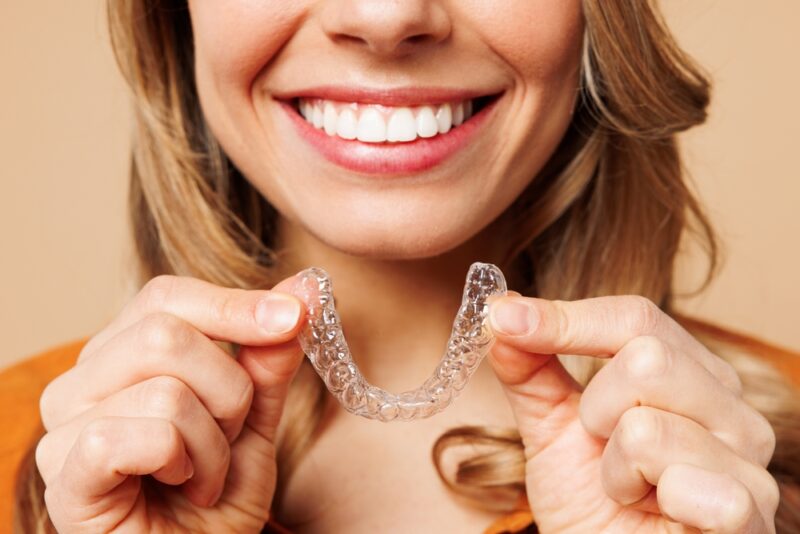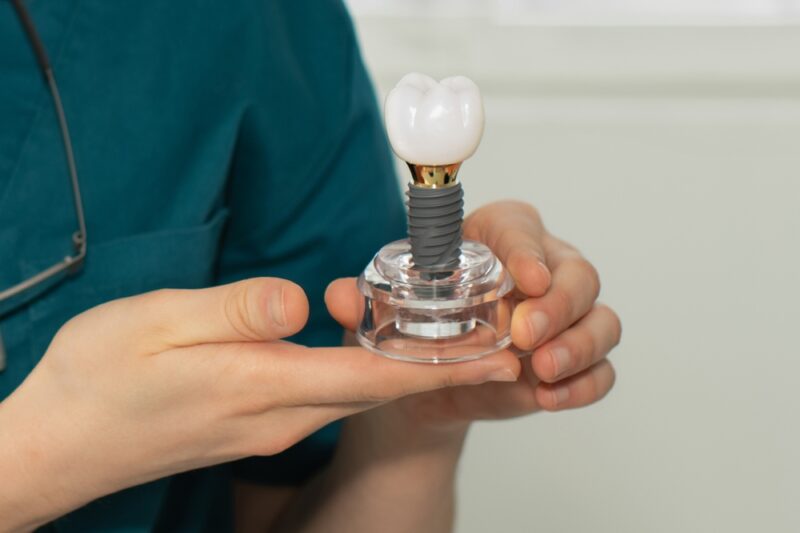Your diet plays a crucial role in maintaining not just your overall health, but also the health of your teeth and gums. While most people focus on brushing and flossing, the foods and drinks you consume every day can either support or undermine your oral hygiene efforts. From cavity prevention to gum disease management, what you eat impacts your smile in more ways than one. Let’s dive into how your diet affects your oral health and what you can do to ensure a healthy, radiant smile.
How Diet Affects Oral Health
Your mouth is the gateway to your body, and everything you consume comes into contact with your teeth and gums. Different foods and drinks have varying effects on your oral health, depending on their composition and the frequency with which you consume them. Certain foods help protect your teeth, while others contribute to decay, erosion, and gum disease.
1. Sugar: The Biggest Culprit
Sugar is the leading cause of tooth decay and cavities. When you eat sugary foods, especially refined sugars found in candies, soda, or processed snacks, the sugar interacts with the bacteria in your mouth to produce acids. These acids attack your tooth enamel, leading to demineralization and the formation of cavities. Sticky or chewy candies are particularly harmful as they cling to the teeth, allowing sugar to remain in contact with your enamel for extended periods.
2. Acidic Foods and Beverages: A Double Threat
Acidic foods and drinks, such as citrus fruits, tomatoes, soda, and wine, can weaken tooth enamel over time. This process, called dental erosion, wears away the outer protective layer of your teeth, making them more vulnerable to decay. While citrus fruits like oranges and lemons offer important nutrients like vitamin C, which is beneficial for gum health, the acidity can still be harmful if consumed in excess or without proper oral hygiene afterward.
3. Frequent Snacking: A Constant Attack on Enamel
Grazing throughout the day may seem harmless, but it can negatively affect your oral health. Each time you eat, the bacteria in your mouth produce acids that attack your enamel. If you’re constantly snacking, especially on sugary or starchy foods, your teeth are under constant assault, leaving little time for saliva to neutralize the acids and remineralize your enamel. Limiting snacks and choosing tooth-friendly options, like raw vegetables or cheese, can help protect your teeth.
Foods That Support Oral Health
Not all foods are harmful to your teeth. In fact, some foods can promote good oral health by strengthening teeth, stimulating saliva production, and even fighting harmful bacteria.
1. Calcium-Rich Foods: For Stronger Teeth
Calcium is essential for healthy teeth and bones, helping to fortify your enamel. Dairy products such as milk, cheese, and yogurt are excellent sources of calcium. Cheese, in particular, can help neutralize acids in the mouth and stimulate saliva production, which washes away food particles and reduces the risk of decay. For those who are lactose intolerant or follow a plant-based diet, fortified plant milks, tofu, and leafy greens like kale and spinach provide good alternatives.
2. Crunchy Fruits and Vegetables: Natural Toothbrushes
Crunchy fruits and vegetables, like apples, carrots, and celery, have a high water content and require a lot of chewing. This extra chewing stimulates saliva production, which helps to clean your mouth and wash away food particles. Their fibrous texture also gently scrubs your teeth, acting like a natural toothbrush to remove plaque. Plus, the vitamins and minerals in these foods contribute to overall gum health.
3. Foods High in Phosphorus: For Tooth Repair
Phosphorus, like calcium, plays a key role in maintaining strong teeth and bones. It helps repair and protect enamel that’s been damaged by acids. Foods rich in phosphorus include meat, eggs, dairy, nuts, and legumes. By incorporating phosphorus-rich foods into your diet, you provide your teeth with the minerals they need to stay strong and healthy.
4. Green Tea: A Natural Protector
Green tea contains antioxidants called catechins, which can help reduce inflammation and fight harmful bacteria in the mouth. This makes it beneficial for both oral and overall health. Some studies suggest that green tea may reduce the risk of cavities and gum disease by inhibiting the growth of harmful bacteria that cause these issues. However, be mindful of drinking green tea in moderation, as it can stain teeth over time.
Hydration and Oral Health
Water is your best friend when it comes to maintaining good oral health. Drinking water helps wash away food particles and bacteria, reducing the risk of plaque buildup. Fluoridated water, in particular, is beneficial because fluoride strengthens tooth enamel and helps prevent cavities.
When you stay hydrated, your body produces more saliva, which plays a critical role in protecting your teeth and gums. Saliva neutralizes acids, helps with the digestion of food, and keeps your mouth moist, reducing the likelihood of gum disease and tooth decay.
Tips for a Tooth-Friendly Diet
To protect your oral health, it’s important to make conscious choices about your diet. Here are some tips to keep in mind:
1. Limit Sugary Foods and Beverages – Reduce your intake of sugary snacks and drinks, especially between meals. If you do indulge, try to rinse your mouth with water afterward to reduce the impact of sugar on your teeth.
2. Opt for Tooth-Friendly Snacks – Choose snacks like raw vegetables, cheese, and nuts instead of chips or candy. These options are less likely to contribute to tooth decay.
3. Drink More Water – Stay hydrated throughout the day to support saliva production and wash away food particles.
4. Rinse After Acidic Foods – After consuming acidic foods or drinks, rinse your mouth with water to neutralize the acids. Wait at least 30 minutes before brushing your teeth to avoid damaging softened enamel.
5. Eat a Balanced Diet – A diet rich in vitamins and minerals, including calcium and phosphorus, supports strong teeth and gums.
Your diet plays a significant role in your oral health. By making smart food choices and practicing good oral hygiene, you can protect your teeth and gums for a lifetime. A diet that limits sugar and acidic foods while incorporating nutrient-rich options will keep your smile healthy and bright. Remember, your dentist can offer personalized advice on how your diet may be affecting your oral health and suggest adjustments to improve it. A healthy diet equals a healthy smile!
Choose Aloe Dental Wellness For All Your Dentistry Needs
At Aloe Dental Wellness, you can expect the very best in dental care with Dr. Daniela Cadavid. Before your appointment, you can expect to enjoy soothing music and fresh coffee, tea, and water in our relaxing patient lounge. Our office is a child-friendly, family-oriented environment, and we pride ourselves on the ability to make patients of all ages comfortable.
Dr. Cadavid is glad to offer a brand-new office equipped with the latest technology and services in both English and Spanish to UCSB students and staff, as well as the surrounding communities. Aloe Dental Wellness in Santa Barbara County is proud to provide general, cosmetic, and emergency dentistry services to meet the needs of your entire family as well. For an appointment, call us at 805-454-7727 today.




